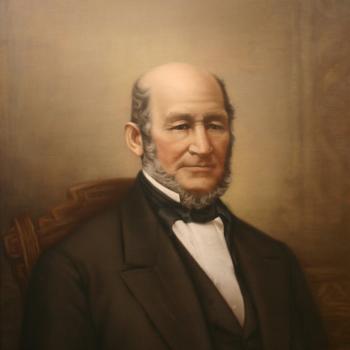I’m not sure I agree with all his arguments, but I thought this article in Christianity Today was an interesting piece about the problems of abstinence education and the trend of later marriages in Evangelical Christian circles (much of it can be applied to Catholics as well). Here’s a tidbit:
Virginity pledges. Chastity balls. Courtship. Side hugs. Guarding your heart. Evangelical discourse on sex is more conservative than I’ve ever seen it. Parents and pastors and youth group leaders told us not to do it before we got married. Why? Because the Bible says so. Yet that simple message didn’t go very far in shaping our sexual decision-making.
So they kicked it up a notch and staked a battle over virginity, with pledges of abstinence and accountability structures to maintain the power of the imperative to not do what many of us felt like doing. Some of us failed, but we could become “born again virgins.” Virginity mattered. But sex can be had in other ways, and many of us got creative.
…It might sound like I devalue abstinence. I don’t. The problem is that not all abstainers end up happy or go on to the great sex lives they were promised. Nor do all indulgers become miserable or marital train wrecks. More simply, however, I have found that few evangelicals accomplish what their pastors and parents wanted them to.
Indeed, over 90 percent of American adults experience sexual intercourse before marrying. The percentage of evangelicals who do so is not much lower. In a nationally representative study of young adults, just under 80 percent of unmarried, church- going, conservative Protestants who are currently dating someone are having sex of some sort. I’m certainly not suggesting that they cannot abstain. I’m suggesting that in the domain of sex, most of them don’t and won’t.
What to do? Intensify the abstinence message even more? No. It won’t work. The message must change, because our preoccupation with sex has unwittingly turned our attention away from the damage that Americans—including evangelicals—are doing to the institution of marriage by discouraging it and delaying it.
…The abstinence industry perpetuates a blissful myth; too much is made of the explosively rewarding marital sex life awaiting abstainers. The fact is that God makes no promises of great sex to those who wait. Some experience difficult marriages. Spouses wander. Others cannot conceive children.
In reality, spouses learn marriage, just like they learn communication, child-rearing, or making love. Unfortunately, education about marriage is now sadly perceived as self-obvious, juvenile, or feminine, the domain of disparaged home economics courses. Nothing could be further from the truth.
In sum, Christians need to get real about marriage: it’s a covenant helpmate thing that suffers from too much idealism and too little realism.Weddings may be beautiful, but marriages become beautiful. Personal storytelling and testimonies can work wonders here, since so much about life is learned behavior. Young adults want to know that it’s possible for two fellow believers to stay happy together for a lifetime, and they need to hear how the generations preceding them did it.
Abstinence is not to blame for our marital crisis. But promoting it has come at a cost in a permissive world in which we are increasingly postponing marriage. While I am no fan of the demographic realities I outlined earlier, one thing I will remember is that while sex matters, marriage matters more. The importance of Christian marriage as a symbol of God’s covenantal faithfulness to his people—and a witness to the future union of Christ and his bride—will only grow in significance as the wider Western culture diminishes both the meaning and actual practice of marriage. Marriage itself will become a witness to the gospel.
If you have time, go check out the article. I particularly appreciated his thoughts on the extended adolescence of young males, a subject Mr. Red and I have discussed at length as we would like to avoid this with our boys. In addition, I appreciated how he highlighted the things parents sometimes do to discourage young marriage, as many have a preconceived notion for their children as to the right time for them to marry. I’m not saying we should all push our children into marriage at the age of 19–definitely not–but rather that we often have ideas about what should be accomplished before a good marriage can take place (such as college, grad school, financial stability), and that sometimes our notions may interfere with God’s more perfect plan for the vocation of our children. Obviously each situation is different, which is why I find my own “plan” for my children so glaringly problematic!
I was a little uncomfortable with the strong emphasis on sex–which is typical of my feelings regarding some Evangelical discussions on marriage–but I think his overall point that the current societal trends are working against God’s design for our body was both very accurate and compelling. I’d love to hear your thoughts.















